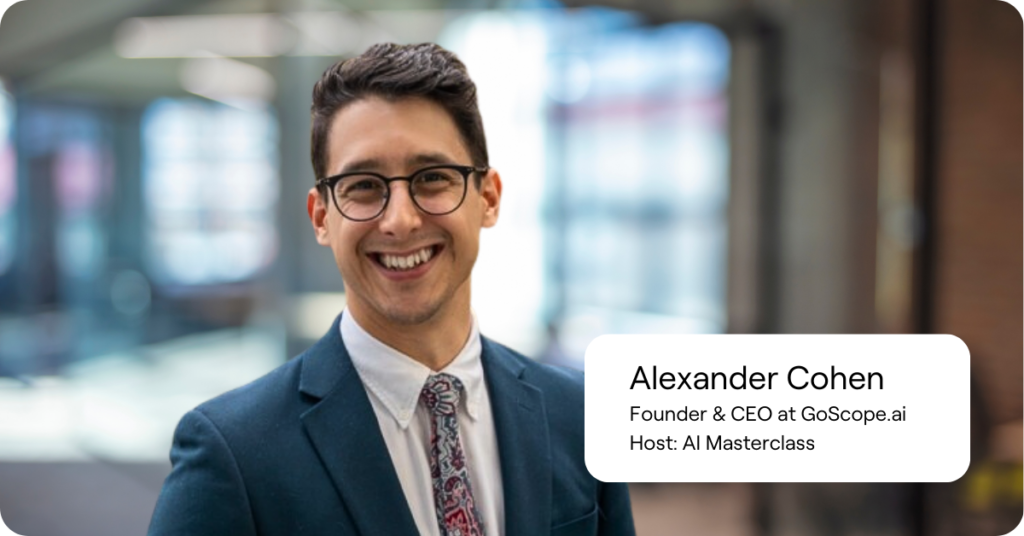
The Power Of Personal Branding – Your Key to Standing Out in a Crowd
- Summer White
Twenty-five years ago, business guru Tom Peters wrote a piece for Fast Company entitled The Brand Called You. The best-selling author suggested that in “The Age of the Individual”, a new brand order was sweeping the world — one in which we all had our part to play. Everyone, Peters said, had the chance to stand out.
And so the concept of a personal brand was born, a concept now more relevant than ever thanks to the prevalence of remote work and tough competition for top jobs. A degree and previous experience aren’t always enough in today’s job market; recruiters and hiring managers are increasingly looking for self-aware candidates who know how to sell themselves and their abilities well. Knowing who you are, what you want and where your strengths lie – and presenting that information effectively – is the key to modern-day career success.
Let’s take a closer look at what a personal brand is, why it’s important, and how to cultivate one.
What is personal branding, and why is it important?
Jeff Bezos famously said, “Your brand is what people say about you when you’re not in the room.” More formally put, we can define it as follows:
“A personal brand is widely recognised and largely uniform perception of an individual based on their experience, expertise, competencies (skills), personality, actions and/or achievements with a community, industry, or the marketplace at large.”
Many well-known people in the tech arena have become famous because they built strong personal brands. Think of online marketer, entrepreneur and investor Neil Patel, whose pay-it-forward attitude garnered him millions of followers across social media. Or Apple’s Steve Jobs, who literally ‘lived the brand’ through his cohesive aesthetic — reflected in his signature black turtleneck and blue jeans — that extended to the simple excellence of Apple products.
Another example is Wordstream founder Larry Kim, who realised producing lots of content on his personal account was far more powerful than hiring a PR team. His personal statement, “Be a unicorn in a sea of donkeys”, has made him so memorable that when some people see a stuffed unicorn, they think of Larry Kim.
How to build a personal brand
One of our FourthRev Career Coaches, Maiyo Febi, recently presented a masterclass in personal brand building, where she talked through the ‘why’ and practical ‘how’ of building a personal brand.
Maiyo said that building a personal brand starts with taking inventory of who you are and what your personality is about. Once you’ve got to grips with this, you can begin to assess what your expertise, experience, skills, and achievement looks like and combine them with your personality strengths to formulate a powerful statement. This way, when people ask you what you do, you can articulate what you bring to the table with confidence and fluency.
These are not small things to wrap your head around. To help, Maiyo unpacked each element:
- Personality: What makes you uniquely ‘you’? How do you position yourself to the outside world in a way that serves you every day?
- Experience: Don’t just think of your professional experience. ‘Experience’ encapsulates things outside of your work that you’ve been doing consistently over time too.
- Expertise: This is something you are uniquely good at and includes the work you’ve done and the roles you’ve held in different organisations.
- Competencies: These are your skills, both hard (technical) and soft (teamwork, communication, etc.) and your specific work-related strengths.
- Achievements: From degrees and education to prizes you’ve won, projects you’ve done in your community and milestones you’ve reached with your family, your achievements are the highlights of your career and personal life.
The building blocks of a personal brand
According to Maiyo, building a personal brand consists of three steps: Preparing, positioning and presenting. Here are some practical tips for each.
Preparation
Establish a base idea of your personality
Consider doing a personality test like Enneagram, Good.co, Brain Profiling, Myers-Briggs and Gallop Clifton Strengths. These tests can give you insight into yourself and help you amplify strengths and identify improvement areas.
Keep a record
Jot down the things you do during your working day, detailing the results you deliver and the value you create. Similarly, write down new things you learned or skills you recently developed, either through learning or work experience. Note how you’ve been performing. For example, if you have a KPIs system in place at work, how many did you reach in the last quarter? What set you up to win? Where could you improve?
Be vulnerable
This can be tough, but ask the people around you for feedback to address your blind spots. To get a holistic view, speak to colleagues and friends. Know whose opinion you value and will take seriously. A helpful tool is the Johari Window for developing self-awareness.
Spend time reflecting
Really understanding who you are and what you want out of life is so important to make changes that will positively affect you in the long-term. Ask yourself questions to identify the values, beliefs and goals that drive you. Some that you might consider:
- What is one thing that comes naturally to me?
- What do I really love doing?
- What would I do every day even if I weren’t paid for it?
- What do others ask me for help with?
- What do I bring to a team?
- What comes naturally to me even though it’s not part of my role?
- What value do I add?
- What skills am I paid for?
- What am I doing when I’m at my happiest?
Positioning
Positioning involves summarising your experience, expertise, personality, competencies and achievements. This forms the foundation of your unique selling point and informs how you introduce yourself at a networking event or interview, on the internet and in your CV.
Maiyo suggests using the CAR method to break down your personal brand statement into three important sections:
1) Context or challenge (the base of the story)
2) Action (what did you do)
3) Result (what happened after the action you took)
As you’re working through this, make use of verbs, such as ‘I built’, ‘I provided’, ‘I changed’, ‘I helped’, ‘I developed’, to relay your active involvement in your story. Keep yourself at the centre and use words that are powerful but concise and easy to understand.
Presenting
Whether it’s online or in-person, you have to ‘live your own brand’. Once you know who you are and how to tell others your story in a compelling way, you need to keep it up and fully believe it yourself to yield the best results.
Here are ways to get it right:
- Communication: Use your body language and voice to your advantage. Look interested and lean into personal conversations.
- Appearance: Your appearance is powerful and plays a large role in creating a first impression. How do you want people to perceive you?
- Consistency: Present yourself as the same person every time, everywhere.
- Energy: What energy do you give off? This is subtle and something that can instantly attract or turn people away. Be aware of how you make people feel.
- Authenticity: Don’t try to be someone else. It’s easy to read fake people, and you’ll be caught out quickly.
An important part of the presentation aspect is increasing your digital footprint across media. More employers are requesting reports to understand who applicants really are, so how you show up online counts for a lot. When using social media, know your audience and choose where you want to be. Remember that you must be able to own, protect and defend whatever you post.
You can grow your personal brand on social platforms through status updates, reviews, opinions, comments, and sharing articles and posts that reflect who you are. Ensure you align your profiles wherever they are — from Github to Substack, LinkedIn and Twitter — to create consistency and sell your brand convincingly.
Get help with your personal brand building
If you enrol in one of our Career Accelerators, you’ll get access to five sessions with a dedicated Career Coach, like Maiyo, who can help you with goal setting, networking tips, personal branding, developing a growth mindset, teaching you how to leverage your LinkedIn profile and preparing for an interview.
If you’re interested in finding out more about our Career Accelerators and how a Career Coach can help you develop and execute your own personal brand, book a call with one of our Enrolment Advisors today.
- Book a call with an advisor on the Melbourne Business School Career Accelerator in Digital Marketing: Analytics and Strategy
- Book a call with an advisor on the King’s UX Design Career Accelerator
- Book a call with an advisor on the King’s Product Management Career Accelerator
- Book a call with an advisor on the LSE Data Analytics Career Accelerator



